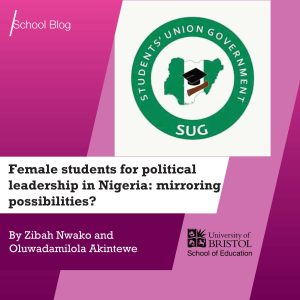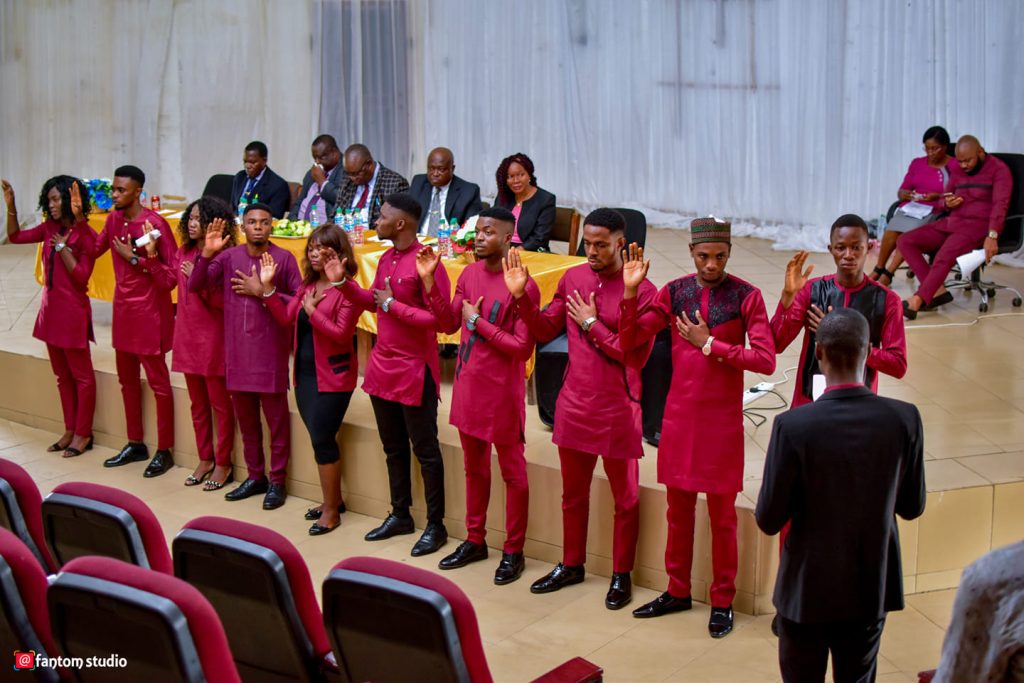 By Zibah Nwako and Oluwadamilola Akintewe
By Zibah Nwako and Oluwadamilola Akintewe
Our society exists in such a way that a small unit can be a mirror to the whole. For instance, the family is one of the smallest units of society and the composition of what makes a family is the representation of, to a certain extent, the larger society. In the same vein, we can deduce that leadership and governance across student unions in Nigerian universities, replicate governance at State and Federal levels.
A student union is the apex body of students in a higher institution of learning, created for the purpose of promoting and guarding the interest of its members[1]. The Student Union Government (popularly termed SUG) is the middle body between the university administration and the whole student population. It is also the first point of contact for vital information disseminated from the top administrative hierarchies to the students.
The executive offices of the SUG comprise of several portfolios, the most important being the President, followed by the Vice President and the General Secretary.
The organisation and formation of the SUG mirrors that of mainstream political spaces in several areas. Every academic year, leaders are elected to political office by the student body. There are similarities in bureaucracy, formality, functionality, and representation. In mainstream Nigerian politics, gender representation has always been unbalanced. In the thirty-six states of the federation, there are currently two female governors and four female deputy governors in executive positions, while the legislative arm of government has a split of 94% in favour of men[2].
It is therefore no surprise that there is a questionable minimal rate of female gender representation in SUGs across Nigerian universities. Where there are ten to twelve executive members, one position is always attributed to women – that of the Vice-president. Whilst this would not normally be a problem when viewed holistically, it appears to be much more than attributing an office to a gender, rather it is a systemic restriction of the power and influence of women in student politics.
In Nigeria, the office of the Vice-President is generally considered ceremonial. The office does not carry out official roles and duties unless delegated the presidency. Likewise, the SUG Vice-President is often considered a mere figurehead. Since the office is often occupied by a woman student, her function is often dubbed as the ‘office for the welfare of women students’. The role carries no incentives or provisions to cater for identified specific needs of women students on campus such as resources for menstrual hygiene or safe spaces against rape and sexual violence.
The office is also not involved in the SUG decision making processes and remains as a token gesture to defend claims of gender representation. Although there are recorded changes in some functions of the Vice-President’s office due to women’s rights advocacy in universities, progress has been minimal.

Several factors contribute to low gender representation in SUG executive councils, including gender role expectations and social norms. Gender roles are evident in student politics because apart from being labelled a ‘ceremonial arm candy’, the Vice-President’s responsibilities are traditionally classified as feminine. For instance, during events, she manages the food, drinks and hospitality given to guests.
Another SUG position reserved for women is that of Welfare Director, also referred to as ‘she who is in charge of the welfarism of the student body’. Notwithstanding their academic or leadership abilities, the occupiers of these offices are determined by the fact that they are women.
Social, cultural, and religious and sexist standards are also factors that reduce female representation in student politics. For example, men are considered as ‘heads’ of the home and this title confers on them leadership, administrative and, of course, authority. Women, on the other hand, are described as ‘home makers’ with mere domestic responsibilities that have no political and economic value. This further translate to the differences in how men and women are viewed in society when it comes to leadership and representation.
These societal practices are similarly reflected in Nigerian educational institutions, from primary to tertiary levels. They are seen in the selection of class captains where, most of the time, a boy is given the top role and a girl is appointed as an assistant, never mind that she may be the best performing student. This mind conditioning practice therefore perpetuates the ideology that males are better suited for leadership roles.
Recently, there have been instances where a woman would declare her intention to vie for SUG presidency and she is met with antagonism, even from others of the same gender. She is accused of seeking to disrupt the status quo. She may be subject to character and physical attacks, leading to bodily harm. Due to these safety concerns, some women students with the capacity and technical know-how, rather than aim to occupy the SUG’s apex position, continue to silence their own political ambitions. Others continue to accept and uphold the status quo.
So, what are the solutions to this menace of unequal gender representation? We present several ideas to consider. Education and awareness seem to be most relevant here. Education is the panacea to ignorance and in every sector, education must go on to combat wrong ideologies.
Firstly, women students need to understand that leadership abilities have no ties with gender. When we call for equal gender representation in political leadership, we need women to step up to the challenge. Enough of the self-sabotage and the impostor syndrome! They are drawbacks to perfectly capable women.
Secondly, education for society. We need to understand the strength of traditional structures that reinforce toxic ideas of gender inequality and uneven representation in political leadership. Rather, we must encourage equality and equity by supporting and engaging with women who are bold enough to run for office.
Lastly, the Nigerian National Assembly is currently reviewing a gender bill that calls for 35% affirmative action, to ensure the protection of women’s rights. The implementation of this gender bill should be replicated across SUGs in Nigerian tertiary institutions as it would help to bridge the gender gap in political representation.
References
[1] Damilola Olufemi & Oluwatosin Ologun. Campus Reporter. Student Unionism: The Past, Present, and the Future To Come. Accessed via https://www.google.com/amp/s/campusreporter.ng/student-unionism-the-past-present-and-the-future-to-come/amp/
[2] Damilola Agbalajobi & Obafemi Awolowo University. The Conversation. Nigeria has few women in politics: here’s why, and what to do about it. Accessed via https://www.google.com/amp/s/theconversation.com/amp/nigeria-has-few-women-in-politics-heres-why-and-what-to-do-about-it-159578
Meet the Authors
Zibah Nwako is an ESRC Postdoctoral Fellow and Senior Research Associate at the School of Education. Her research covers the welfare and wellbeing of women students in African universities, and she currently works on an interdisciplinary impact project with young entrepreneurs in Africa.
Oluwadamilola Akintewe is a Law graduate and recipient of the 2022 Princess Diana Award. Her work champions women’s human rights, policy advocacy and youth leadership inclusion.
